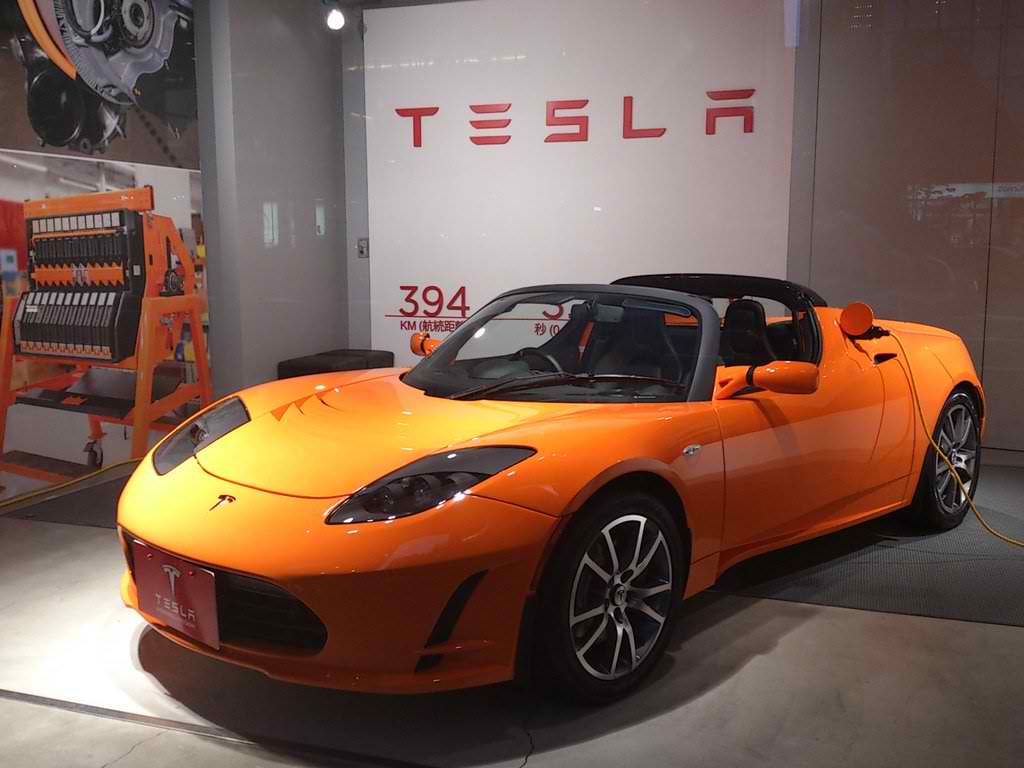I lived in a Pennsylvania house heated by wood. The idea of using our manual labor, in the form of wood, to toast bread was silly - but we owned an electric toaster. Somehow, being removed from the direct labor equation made toasting more acceptable, though our ancestors thought it a pastime for the idle rich.
The 20th century was the era of the toaster in many ways. It was the first time that a sustained product was created for no other reason than to make another product useful. Food was not invented to make a spoon useful, for example, yet toasters were marketed and sold precisely because electricity generation became popular - and utility companies were producing it all of the time, so they needed people to use it. Everything soon had electric versions, even products that made no sense, like an electric knife.

The toaster of the 21st century. Tesla Roadster. Image: Wikipedia CC BY 2.0
But demand is finite and these days it's a cultural no-no to tell the public to leave the television on all of the time. Demand for electricity has flat-lined - Americans actually conserve energy quite well and because electricity in America is highly regulated, companies may not be allowed to create efficiencies in other areas, like buying up transmission lines or signing long-term contracts, without government permission. Or raise rates either.
That is why utility companies love the idea of government-subsidized solar and wind energy - they get the same margin on a more expensive product, without needing government approval or getting media posturing if they just ask for more money. And American companies see German utilities making a billion dollars in profit in the 'balancing market' - where always-on utilities have to be available on a moment's notice to fill the gap if the wind stops blowing or it rains. Finally, they get to charge all customers more for those solar installations installed by rich people. All Californians pay 50 percent higher utility rates than the rest of the country because of so much 'green' energy for multi-million dollar Malibu homes.
Though mass acceptance of electric cars would have almost no impact on emissions, environmentalists embrace them, and so does their enemy, Pacific Gas & Electric. It's the perfect storm for uptake of modern-day toasters.
Now utilities are excited about the chance to build lots and lots of charging stations for those electric cars. It's for Gaia, right? Not really. Since California won't accept actual viable modern electricity generation, such as natural gas or nuclear, most of the electricity is terrifically expensive solar or emissions-belching coal. But because those charging stations will be considered a green energy initiative, utilities get to add a surcharge to consumers, even people without electric cars - which is almost everyone. There are only 200,000 electric cars in the entire U.S. That means for every middle class and rich electric car owner, 1,649 other Americans are responsible for higher utility rates.
With so few electric cars out there, and with presumably everyone charging them at their homes, why are utilities in a rush to build so many remote charging stations? Because the 21st century toaster takes 8 hours to make toast and that is good business. What also gets left out of public relations claims about saving the planet are the laws of physics - each electric car charger has the equivalent load of an entire new house on the grid. And since the grid is already weak, who will then have a reason to charge customers more to upgrade it, without needing government approval to raise rates? Utilities.
If you like corporate welfare, electric cars are the natural successor to solar panels. Most people would rather keep their money and let the rich overpay for their toast.




Comments